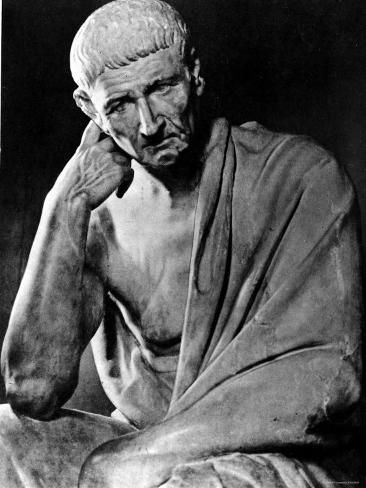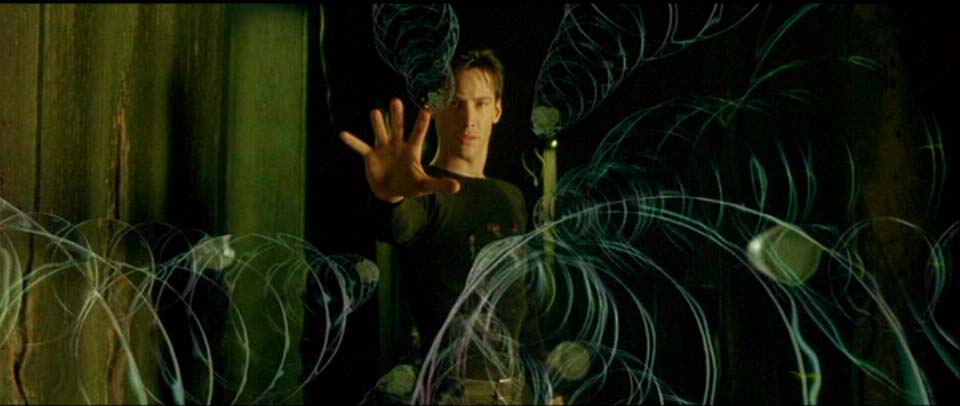This is a post from the series, "The Highest Human Science". Click here for a complete list of all posts in the series.
 It has been quite some time since I last posted to this series, but I have returned to it, drawn by the most important (and my favorite) chapter of it all. Thus far, we have seen Man's attempts at making sense of the confounding world in which he lives. These studies led him to ask the questions around the material and immaterial compositions of things, the purpose of reason, and the search for truth.
It has been quite some time since I last posted to this series, but I have returned to it, drawn by the most important (and my favorite) chapter of it all. Thus far, we have seen Man's attempts at making sense of the confounding world in which he lives. These studies led him to ask the questions around the material and immaterial compositions of things, the purpose of reason, and the search for truth.
Poised and prepared to give the course of human wisdom one last mighty turn, Aristotle, a resident alien of Athens and a student of Plato, accepted
the challenge of traversing the intellectual mountain that even his
masters before him were unable to navigate, error-free. He took all of
the good conclusions and thoughts from the teaching of Socrates, Plato, and the other noteworthy philosophers and purified them of their errors, solidifying a reality for the
human intellect to comprehend. With each piece in it's proper place, he would create the true philosophy, one which if all basic principles were properly understood, would be the most excellent starting point for mankind's intellect.
A biologist by study, Aristotle's teachings and writings appeal to the practical mind and those for whom primary understand comes from their senses and experience. He did not abstract often, and applied his reason to his experiences and using fundamental philosophical principles, explained the natural world around him. In that sense, his philosophy remains perfectly balanced between the appeal to the sense and the consideration of immaterial, unchanging philosophical principles.
It is very difficult to know where to start with Aristotle, since his worldview is so tightly knit and coherent that various branches of the main shoot will often return and be interwoven with other topics of his study.
Probably the best place to begin would be the fundamental basis on which his principles differed from Plato, his instructor. Plato's theory of substance and form had them separate: matter existed here on earth, imperfect and perceivable to the senses, while the form of a thing resided in the heavens and is the goal of our contemplation. Aristotle's view, on the contrary, places the form and matter of a thing in same entity. This dispelled the thought that the world around us was only a deception of reality and instead, established that the world around us was indeed reality.
To aid in our understanding of this, we will consider the example from the previous post of a glass of wine. It's true that in attempting to determine the essence of wine, we will arrive at an understanding of the form. But instead of each glass of wine suggesting to our intellects that there is some perfectly Wine form in heaven (according to Plato), our reason perceives a "trend" in individual physical manifestations of one idea. Therefore, a glass of wine doesn't help us to know what the perfect heavenly form is (suggested by Plato), it helps us to determine what the glass of wine itself actually is. The "matter" of wine (sugars, proteins, alcohol, etc.) all could take any other form, but the fact that the matter takes the "form" of wine is something present abstractly, though tangibly in the organization of these material ingredients to present to our senses "wine", in both form and matter (as opposed to "bread" or "wood").
 In categorizing the substance and accident of a thing, Aristotle identified the two of his four "causes": the formal cause and the material cause. All together, the four causes answer the questions of "why" a thing is the way it is. The third cause is the efficient cause, which is the motivator of change within the thing. For example, the combination of nutrition in a child and the natural tendencies of his body is the efficient cause of his growth. The fourth and final cause is just that: the final cause. It is that which is the end or natural destination of the thing; it is that for the sake of which the being exists.
In categorizing the substance and accident of a thing, Aristotle identified the two of his four "causes": the formal cause and the material cause. All together, the four causes answer the questions of "why" a thing is the way it is. The third cause is the efficient cause, which is the motivator of change within the thing. For example, the combination of nutrition in a child and the natural tendencies of his body is the efficient cause of his growth. The fourth and final cause is just that: the final cause. It is that which is the end or natural destination of the thing; it is that for the sake of which the being exists.
 In categorizing the substance and accident of a thing, Aristotle identified the two of his four "causes": the formal cause and the material cause. All together, the four causes answer the questions of "why" a thing is the way it is. The third cause is the efficient cause, which is the motivator of change within the thing. For example, the combination of nutrition in a child and the natural tendencies of his body is the efficient cause of his growth. The fourth and final cause is just that: the final cause. It is that which is the end or natural destination of the thing; it is that for the sake of which the being exists.
In categorizing the substance and accident of a thing, Aristotle identified the two of his four "causes": the formal cause and the material cause. All together, the four causes answer the questions of "why" a thing is the way it is. The third cause is the efficient cause, which is the motivator of change within the thing. For example, the combination of nutrition in a child and the natural tendencies of his body is the efficient cause of his growth. The fourth and final cause is just that: the final cause. It is that which is the end or natural destination of the thing; it is that for the sake of which the being exists.
With this notion, Aristotle's metaphysics laid the groundwork and justification for his ethics; since the ideas we have in our heads come from our senses, it is our job to form the correct ideas from what our senses present to us. Although our understanding may err, our senses, if they be not defective, never lie. Having established that the physical world around us is a reliable source of information, Aristotle proceeds to answer the question of what man "must do" by demonstrating the "good" of man. It is towards the pursuit of this good that all of man's actions should be directed, and this good is virtue. I won't go into too much detail on this here, but you can find a more detailed study of this on one of my previous posts, "The Human Good".
In determining the good of one man, Aristotle deals with the good of all men in his Politics. His method stems from beginning with those foundations of politics that do not stem from "deliberate choice", namely that between husband and wife or master and slave. Neither can subsist without the other and so this is a necessary community. From this, Aristotle expands to a household, which includes children and servants, then to a series of households to form a village or colony.
The point of self-sufficiency is where Aristotle draws the line of what was known in ancient Greece as the polis or "city-state". The city-state comes into existence for the sake of existence and is the necessary end of the primal relationships between man and woman, master and slave. In this way, Aristotle claims that the polis is a natural organization, which makes man, by nature, a political animal.
Though I have only barely scratched the surface of the breadth of Aristotle's intellectual genius, I hope the reader has retained at least a preliminary impression of Aristotle's contribution to the study of human reason and wisdom. It seemed difficult to even hope that the human race would be so graced with the blessing of just one such intellectually masterful man; however, with the teachings of Jesus Christ (approximately 300 years after Aristotle) and the addition of this divine perspective, the study of human reason would need some finishing touches before all was said and done...
The point of self-sufficiency is where Aristotle draws the line of what was known in ancient Greece as the polis or "city-state". The city-state comes into existence for the sake of existence and is the necessary end of the primal relationships between man and woman, master and slave. In this way, Aristotle claims that the polis is a natural organization, which makes man, by nature, a political animal.
Though I have only barely scratched the surface of the breadth of Aristotle's intellectual genius, I hope the reader has retained at least a preliminary impression of Aristotle's contribution to the study of human reason and wisdom. It seemed difficult to even hope that the human race would be so graced with the blessing of just one such intellectually masterful man; however, with the teachings of Jesus Christ (approximately 300 years after Aristotle) and the addition of this divine perspective, the study of human reason would need some finishing touches before all was said and done...


.JPG)















.jpg)




